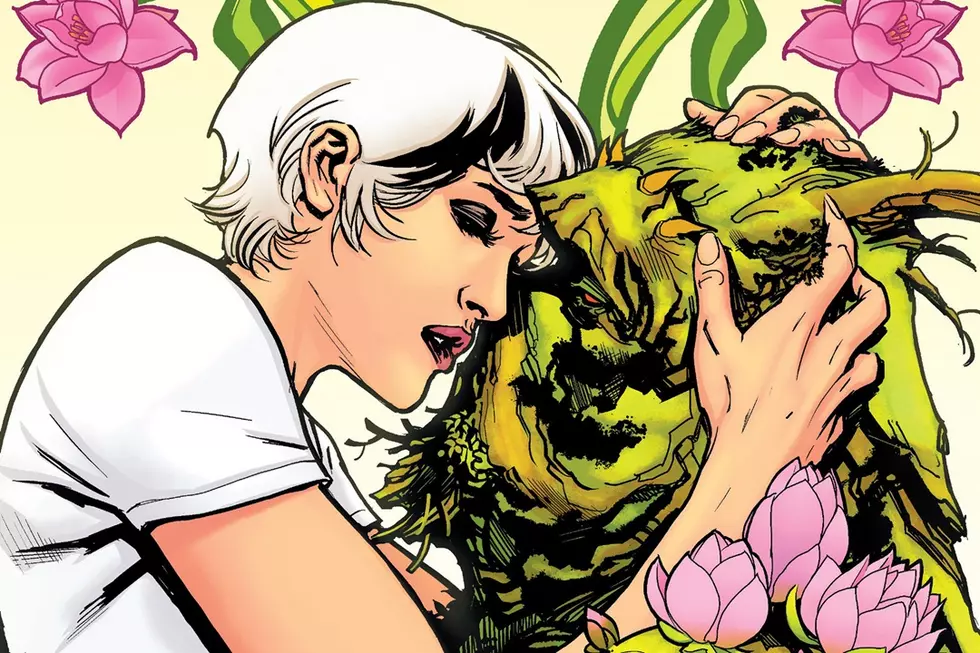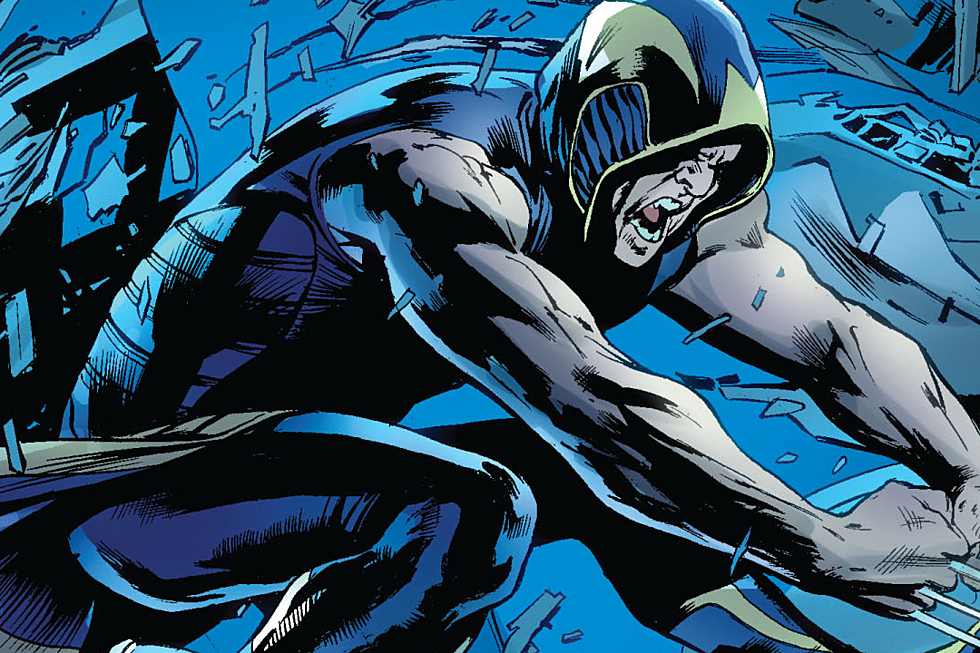
How I Learned to Stop Being an Idiot and Love Jonathan Hickman
This is a little parable about my thick skull and how doing amazing work for hire can be an incredibly powerful tool for promoting your creator-owned career.
When Jonathan Hickman's comics debut "The Nightly News" came onto the scene back in 2006, I let it pass me by. Yeah, it looked interesting and unique; yeah, it was garnering rave reviews; but it was also different, and who knows if it'd ever go anywhere, so I just sort of quietly forgot about it, and let it, "Pax Romana", "Transhuman" and "Red Mass for Mars" pass me by without even really giving them a fair glance. I mean, sure, they were probably stuff I'd get to at some point, but until then I had some Grant Morrison and Matt Fraction comics to keep me busy.
I'm not saying this is a thought process I'm proud of, just that it was what it was.

So cue the beginning of 2009 – "Secret Invasion" just wrapped up at Marvel, and Brian Michael Bendis had too full of a plate to handle all the titles he wanted to write, one of which was an ongoing centering around Nick Fury and a group of young secret agents. He still felt it was a story that needed to be told, though, so he brought in indie wunderkind Jonathan Hickman to co-write the first arc with him, and then inherit the title. That book was "Secret Warriors," and it was one of the best books of 2009.Like Hickman's creator-owned work – which I've recently powered through, and more on that later – it's incredibly intricate plotwise, but with a sort of well-defined economy of character. This guy is the hothead, this guy is the chick with speed powers trying to run away, this guy is the kid demigod. When Grant Morrison wrote "Final Crisis" #7, he said he had in mind a sort of "channel-zapping", "Crank 2"-inspired approach where the narrative is distilled down to its most important discrete, distinct moments and the reader is required to fill in the continuous gaps with a kind of narrative calculus.
This is the approach Hickman takes to all of his work, completely naturally – even all the way back to "Nightly News," which far predates "Final Crisis." If I had to define Hickman's two greatest strengths as a writer, they would be structure and economy, his ability to balance a large cast with a complex and rapidly progressing plot via the pure power of methodical planning. For the most part, his plots are bulletproof and every aspect of his stories broadly well-defined; with the exception of Nick Fury and probably Alex, everyone in "Secret Warriors" is painted with fairly broad strokes.
So it surprised me when he followed this up with "Fantastic Four," after the generally underwhelming Mark Millar/Bryan Hitch run (which partially wasn't the fault of the creators, due to health reasons) with a concentrated blast of character-driven insanity. His "Fantastic Four" run has been a mile-the-minute torrent of ideas, from the Council of Reed Richardses to the Universal Inhumans to the apocalyptic Black Hole Sun world that Nu-Earth has become. It's exciting and fresh and new, and it's smart, and it contains the fundamental hopefulness that defines the general tenor of "Fantastic Four" comics.

But maybe even more than that, it has something "Secret Warriors" and his creator-owned titles didn't: in-depth characterization. His vision of all of the Fantastic Four is vivid, but I think his best-defined characters are actually the children: Franklin and Valeria.
The book absolutely glows when Hickman gets his hands on those kids, and that's when I realized, as a reader, that I had completely misjudged Jonathan Hickman. His work on "Fantastic Four" showed me he wasn't just some kind of cold mechanical plotsmith like I'd originally envisioned; indeed, it's what inspired me to go back and read all of his creator-owned work, since clearly there was something I had missed, or I wasn't approaching it from the right perspective. So I tracked down "Nightly News," and long story short: it turns out I was an idiot. Reading it seriously made it fairly evident that he burned with a personal creative fire. He's a dude relating his experiences and worldview, just like everyone else I loved.

"Nightly News" resonates with the punk-rock eat-it fervor of a new artist staking his claim; "Pax Romana" is more mature, benefiting from both a more expansive high concept and a spelling/grammar check. "Transhuman" was amusingly pathetic, the kind of piss-take on humanity that Warren Ellis does so well but filtered through Hickman's unique lens. Out of all of his trade-available creator-owned work, "Transhuman" is definitely the funniest; all of Hickman's work reflects the basic theme of the limitlessness of the potential of human progress and endeavor, but "Transhuman" is a clever parable about humanity's ingenuity driving itself into an evolutionary dead end.
They're all absolutely excellent comics, and stuff I'll come back to, fully justifying their prices. So why was I so silly as to write Hickman off in the first place? If there's anything I've learned, it's this: Mainstream superhero work is, at least in my case (and I know in many others), a fantastic gateway to someone's creator-owned work, and in a way the perfect promotional device for their own stuff.
In the creator-owned vs. superheroes war that seems to be constantly ongoing, sometimes it's important to remember that keeping a solid foot in both worlds can lead to both some pretty damn awesome superhero comics and leading numbskulls like me to finally discover and appreciate your great creator-owned work. Comics are one of the few areas where the writer deliverables are small enough for people to keep feet wading in both their own and others' pools, when it comes to intellectual property – take advantage of it! Use your fanbase from Superman and Green Lantern comics, Thor and Nick Fury comics, to tell your own stories. It's the new recipe for success.
More From ComicsAlliance







![Listen, Bud: Nine Super-Hero Cartoon Themes Worth Remembering [Music Week]](http://townsquare.media/site/622/files/2017/01/themesongs.jpg?w=980&q=75)

